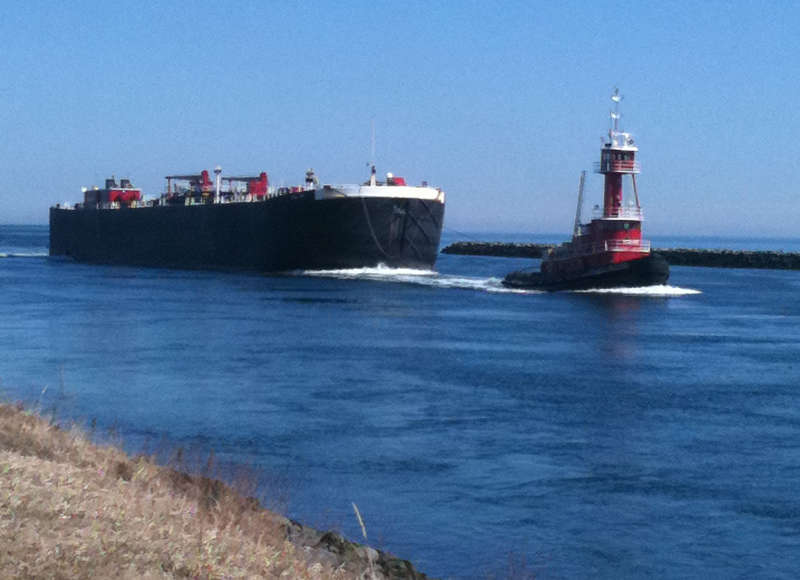Double hull barge requirement better, but still not enough to prevent oil spills in Buzzards Bay
Because of a federal law put in place over 25 years ago, single hull vessels are now officially banned from transporting oil through U.S waters as of January 1, 2015. The rule is part of the Oil Spill Prevention Act of 1990 which was passed following the Exxon Valdez oil spill. Although few single hull vessels were still in operation as of last year, only vessels with a double hull may now bring oil through Buzzards Bay.

Double hull barges are better. But it’s still critical that all oil barges have escort tugs in Buzzards Bay.
Single hull vessels have only a single steel plate in between the oil product they carry and the water they are traveling in. In contrast, double hull vessels have two steel plates with an empty space in between, which provides an additional layer of protection.
However, as recent spills from double hull vessels in Singapore and Galveston, Texas show, double hull laws alone aren’t enough to prevent oil spills.
That’s why it’s critical that double hull barges have escort tugs in Buzzards Bay. The Coalition is continuing to defend the escort tug requirement in the Massachusetts Oil Spill Prevention Act, but the Coast Guard and oil transport industry are trying to weaken that state law. This is despite ample evidence that vessels traveling through Buzzards Bay regularly rely on escort tugs, as they did in this incident from last fall.
The end of single hull vessels is an important step forward, but it’s not enough to protect our precious Bay from oil spills. The Coalition will continue to defend these critical protections, but we can’t do it alone. By joining us, you can lend your voice to keep the Bay safe from the threat of oil spills.